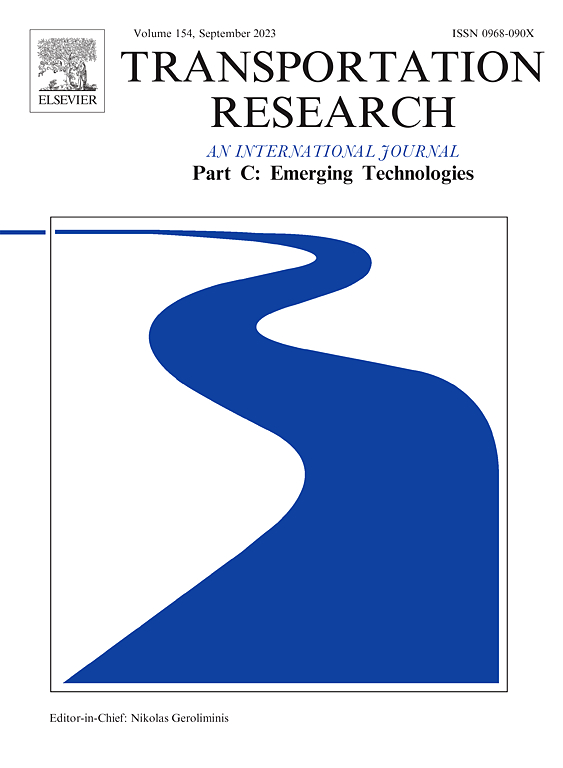Prediction of traffic state variability with an integrated model-based and data-driven Bayesian framework
IF 7.6
1区 工程技术
Q1 TRANSPORTATION SCIENCE & TECHNOLOGY
Transportation Research Part C-Emerging Technologies
Pub Date : 2025-02-01
DOI:10.1016/j.trc.2024.104953
引用次数: 0
Abstract
Deriving statistical description of uncertainties associated with prediction of traffic states is essential to development of reliability-based intelligent transportation systems. This paper presents a Bayesian learning approach framework for predicting evolution of both traffic states and the associated variability. The proposed framework ensures the interpretability and stability of the predictions with an underlying state space model, and captures sophisticated dynamics of traffic variability via a data-driven recurrent neural network component. By maintaining the filtering structure in the specialized neural network component, the proposed integrated model overcomes the key limitations of deep learning systems by improving the data efficiency and providing interpretability. The framework is trained with a multivariate Gaussian negative log-likelihood loss function for quantifying both model and stochastic uncertainties. It is implemented and tested with actual traffic data collected from a Hong Kong Strategic Route. The case study shows that the proposed prediction framework can simultaneously retain the interpretability of the results while capture the complex dynamics of the evolution of traffic variability with the recurrent neural network component. This study contributes to the development of reliability-based intelligent transportation systems through the use of advanced statistical modeling and deep learning methods.
求助全文
约1分钟内获得全文
求助全文
来源期刊
CiteScore
15.80
自引率
12.00%
发文量
332
审稿时长
64 days
期刊介绍:
Transportation Research: Part C (TR_C) is dedicated to showcasing high-quality, scholarly research that delves into the development, applications, and implications of transportation systems and emerging technologies. Our focus lies not solely on individual technologies, but rather on their broader implications for the planning, design, operation, control, maintenance, and rehabilitation of transportation systems, services, and components. In essence, the intellectual core of the journal revolves around the transportation aspect rather than the technology itself. We actively encourage the integration of quantitative methods from diverse fields such as operations research, control systems, complex networks, computer science, and artificial intelligence. Join us in exploring the intersection of transportation systems and emerging technologies to drive innovation and progress in the field.

 求助内容:
求助内容: 应助结果提醒方式:
应助结果提醒方式:


